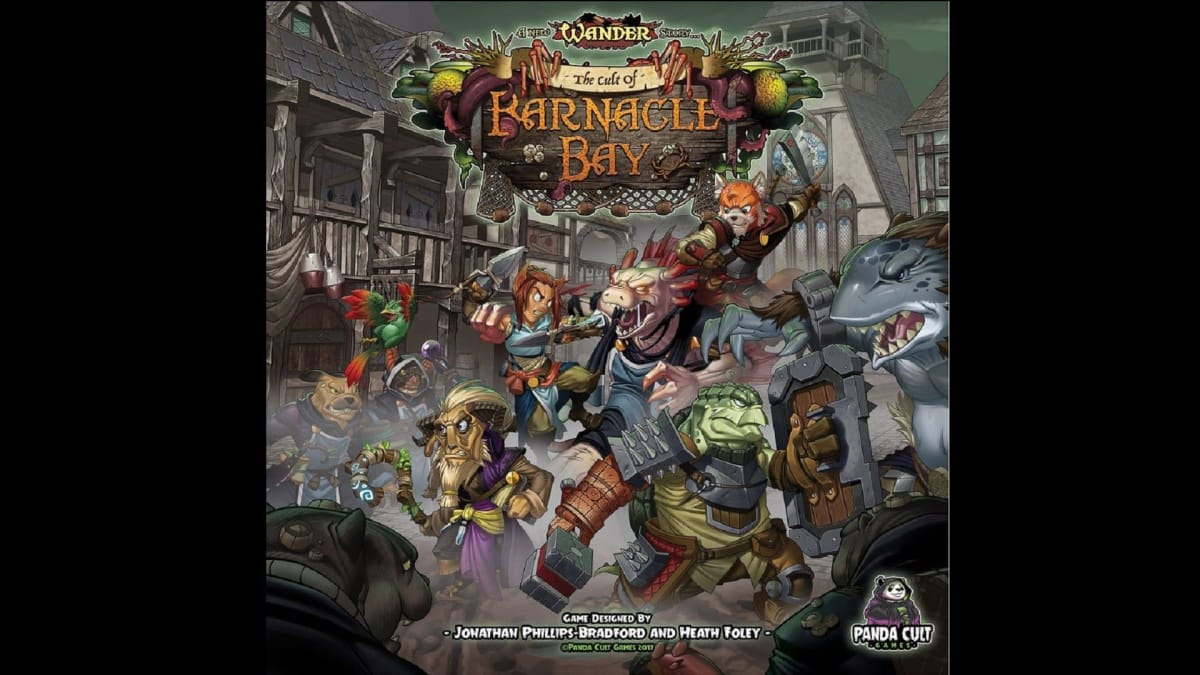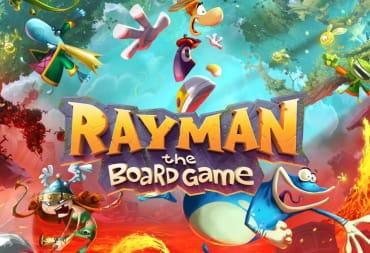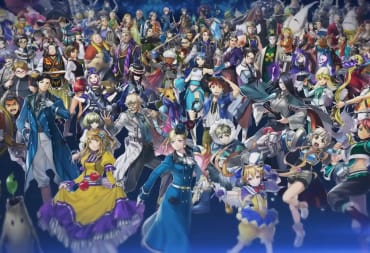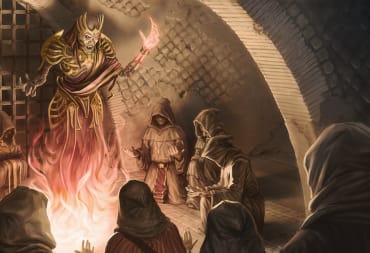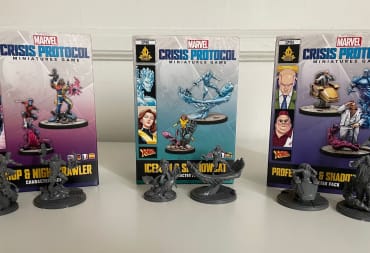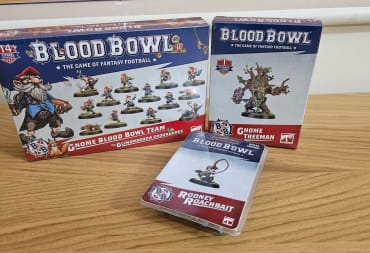I've played a LOT of cooperative dungeon-crawling board games over the years. Some of my favorite games ever fall into this genre, and I've played and loved a truckload of them from the overly complex to the tried-and-trues to the simplistic but enjoyable. Cooperative gaming is one of the best ways to get newer players in to the hobby, but aside from some of the more simplistic games in the genre I've only been able to play a few with my kids, either because they were too complex, or because the theme didn't fit with a family dynamic. Wander: The Cult of Barnacle Bay changes that by being accessible enough that younger players can grasp it and play, and by having a family friendly theme that both younger players and adults who don't appreciate violent and gruesome imagery can enjoy. While the game is streamlined in a lot of ways, it never feels simplistic, and instead manages to feel engaging and satisfying throughout, both via the gameplay and through it's interesting storytelling.
Wander has a straightforward comicbook/cartoon style that is both vibrant and colorful, which appeals to younger gamers, without feeling childish. It's easy to get people to take notice of this game as soon as they see the art style, and the game looks just as beautiful on the table as it does on the page. Thankfully it's easy to learn and teach as well, and it manages to be relatively straightforward without feeling simplistic or unsatisfying, although there are a few quirks that are a bit odd.
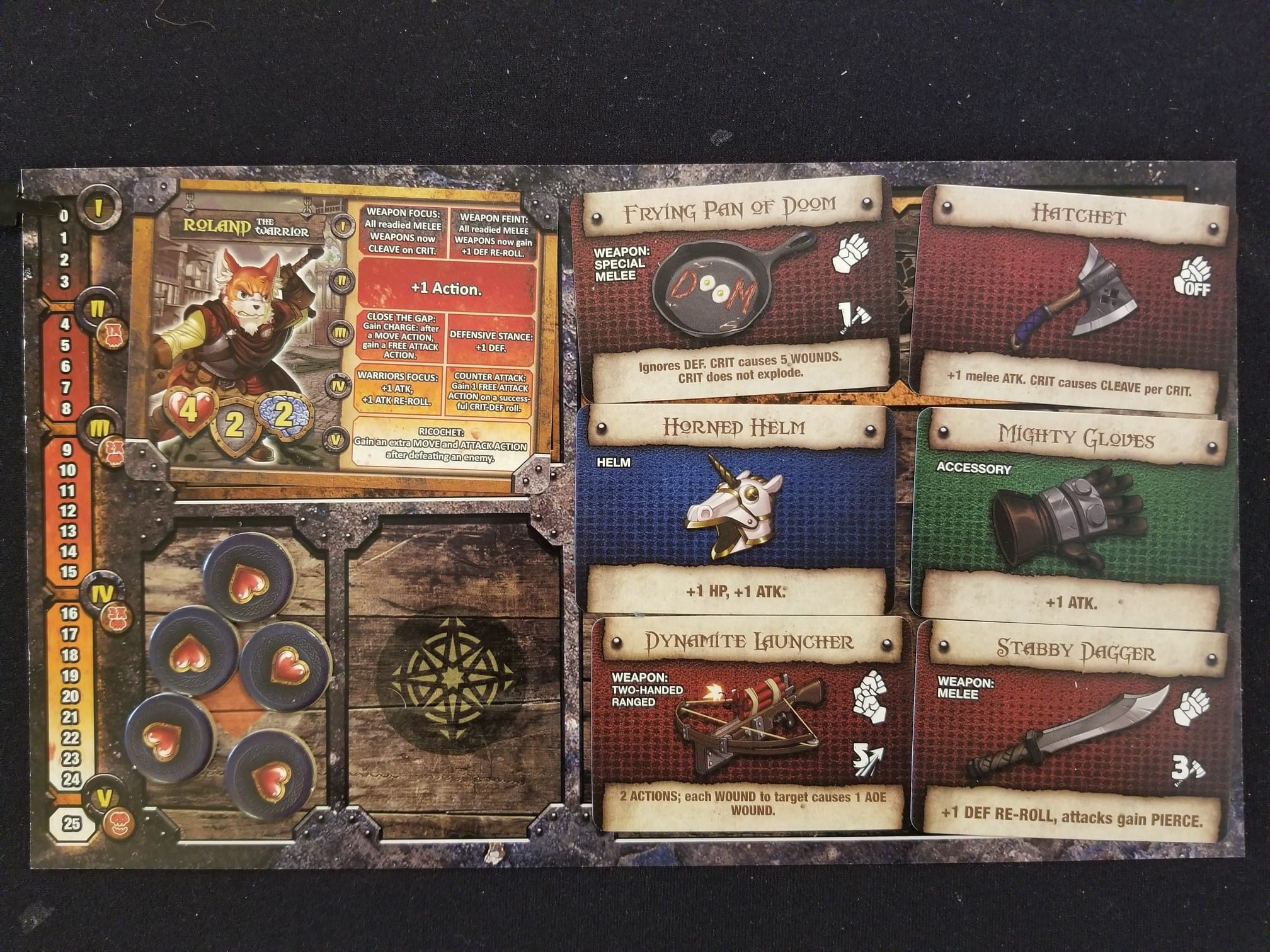
One of the biggest oddities in Wander is the way the experience system works. In any given mission, as players kill baddies their characters gain XP. As a character goes up in XP they gain access to new, more powerful abilities, and often when a player crosses into a new experience tier they get a choice of which ability to use. This is all par for the course as far as gaining XP and leveling up goes, but the XP system also acts as a way to ramp up the difficulty of any given mission as well. The first character that crosses into the next tier causes some monsters to spawn. The higher the tier, the tougher the monsters. This encourages players to share the love, and spread the XP around as much as possible, but it also almost feels a bit like 2 steps forward, 1 step back at times.
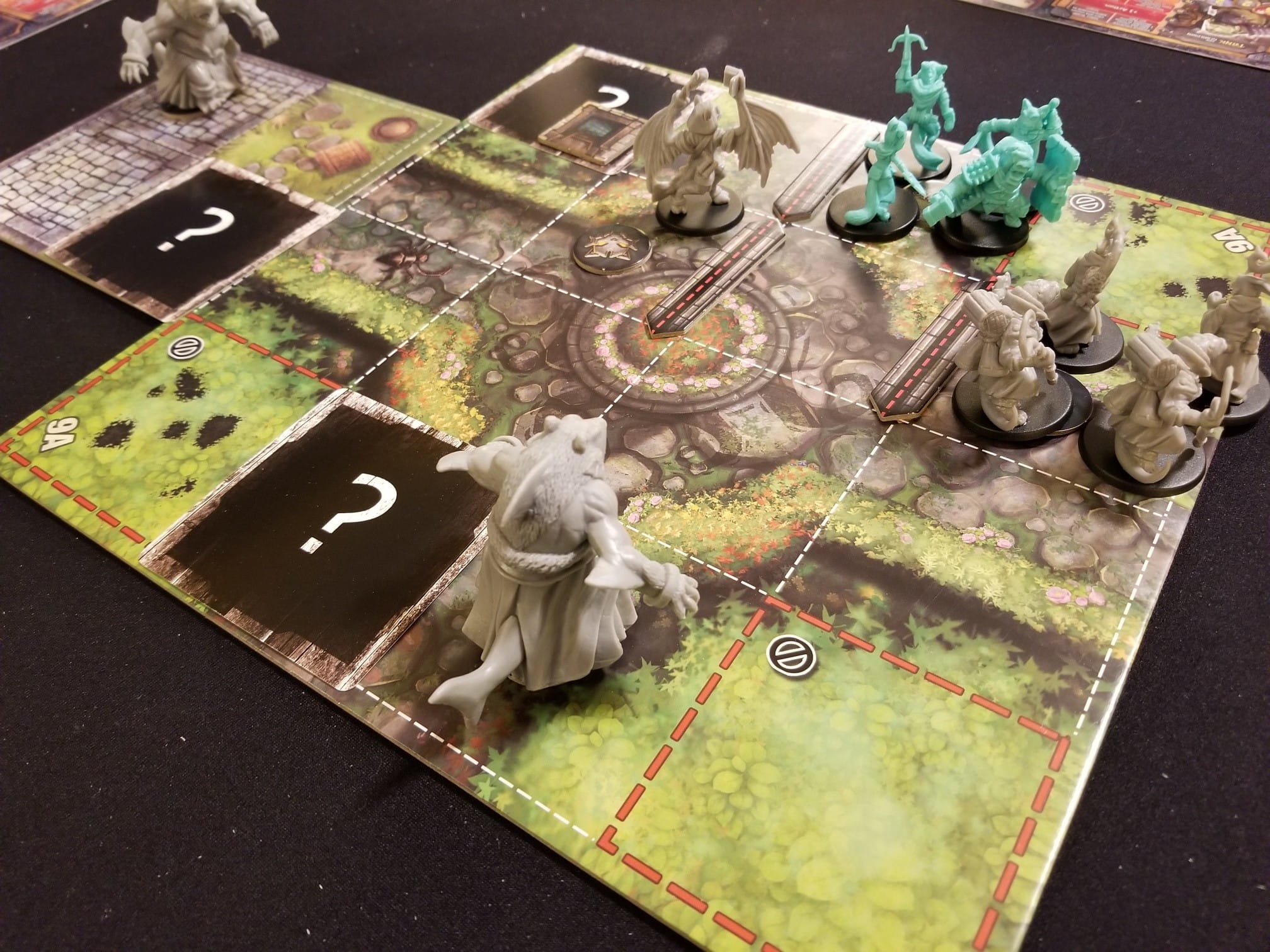
Wander is a campaign-focused game, and there is loot and gear to be found during missions. The goodies that you find can be carried with you from mission to mission, but XP does not stay with you. This was a really hard thing for my group and I to wrap our heads around. It may have been easier if it were called something other than XP, but as it is it's a bit jarring to lose all of the XP and abilities you gained from mission to mission. The game is balanced around this design, and it works in practice, but it is one of the few stumbles thematically that this game has.
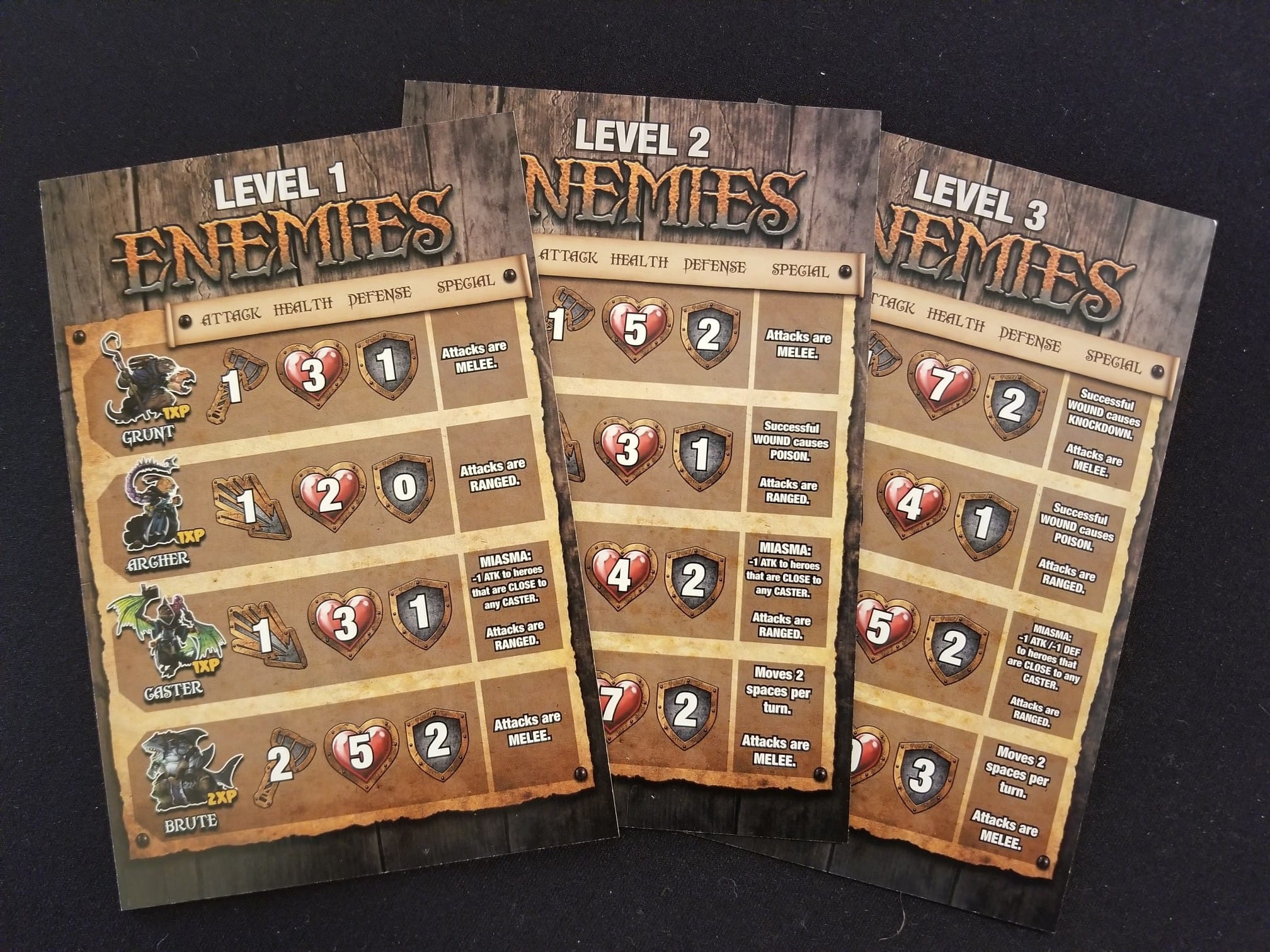
Aside from the XP wiredness, the rest of Wander is really solid. The campaign structure is an absolute bright spot, especially as it's told in a choose your own adventure style. At the end of most scenarios you have small selection of missions that you can choose to do next. There is no way to complete every mission in a single campaign, so the game has an inherently high replay value as you make different choices from one campaign to the next. There are 24 total scenarios, so you will need to play through a campaign 3 times in order to see every mission. There is a bit of a difficulty jump between each of the 'acts' of the campaign, as enemies get stronger before heroes have a chance to find new, powered-up loot, but it's not so sever as to be crippling.
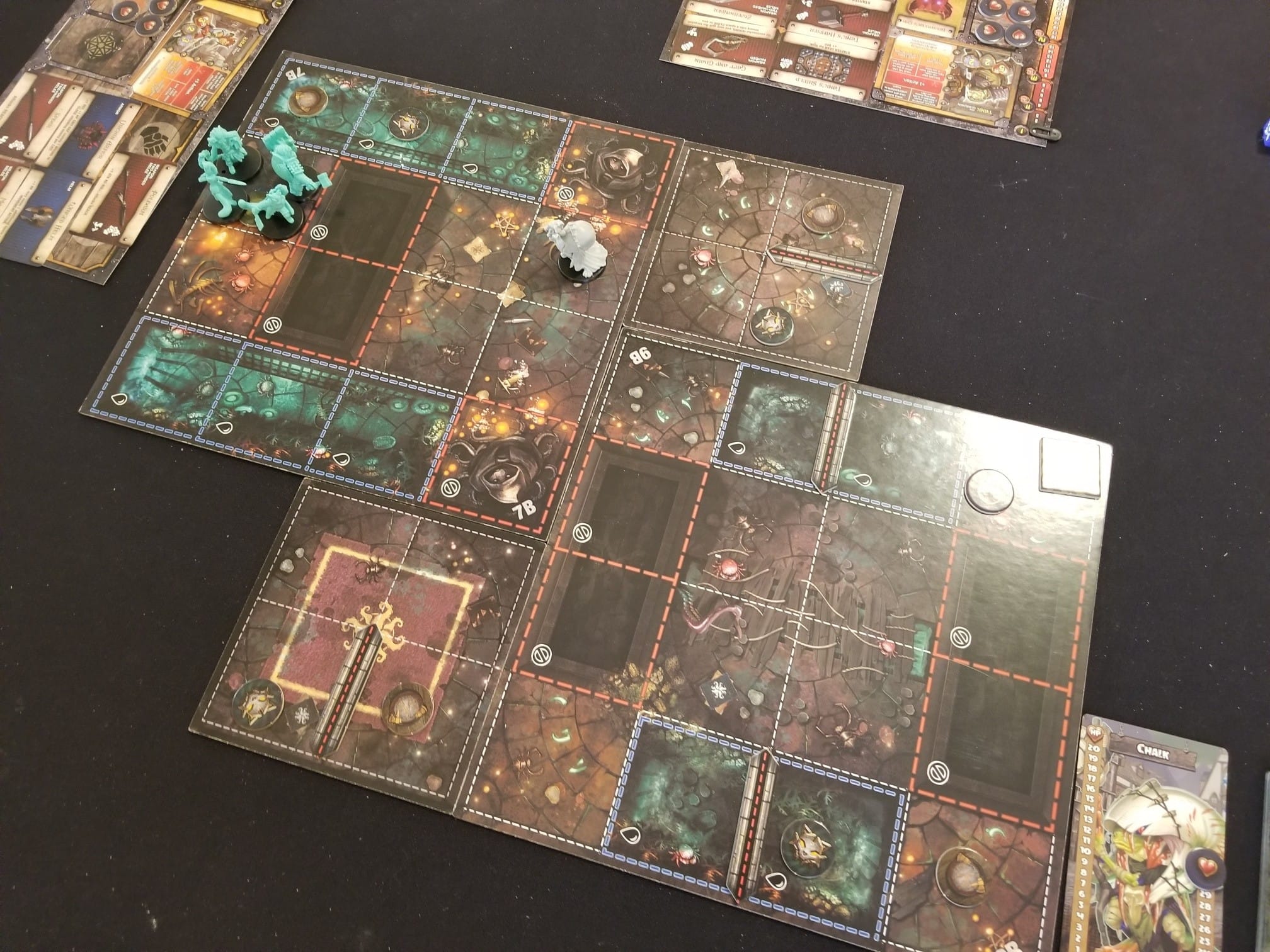
In some campaign games playing through 3 times would be something that few people would even attempt, either due to repeated missions or sheer campaign length, but the brevity of Wander's campaign, coupled with the ease of play means that playing through 3 campaigns isn't unreasonable, even if you only play it here and there. The mechanics of the game lend themselves to that replayability as well. The enemy mechanics are incredibly streamlined, and the characters all have multiple different build options that you can use, especially once you start to get a few missions under your belt and you gather up some choice gear.
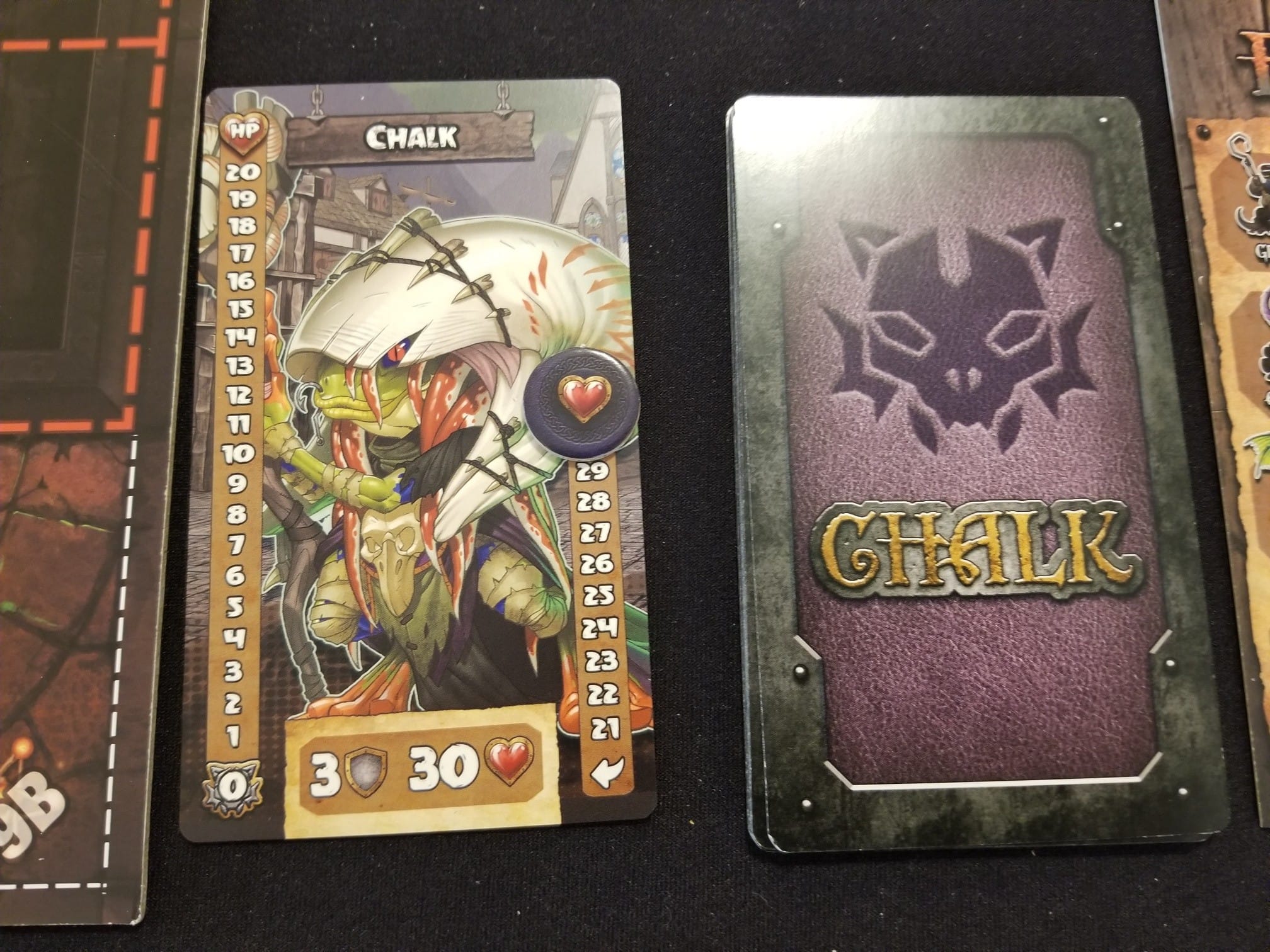
Missions usually have a few parts to them, none are really so long that they overstay their welcome, and they can easily be completed in an evening session. Because enemy AI is so straightforward, and movement and line of sight rules are easy to understand there isn't a lot of downtime between player turns, so staying engaged through an entire scenario is easy, even if you are playing with someone with a shorter attention span or with younger players.
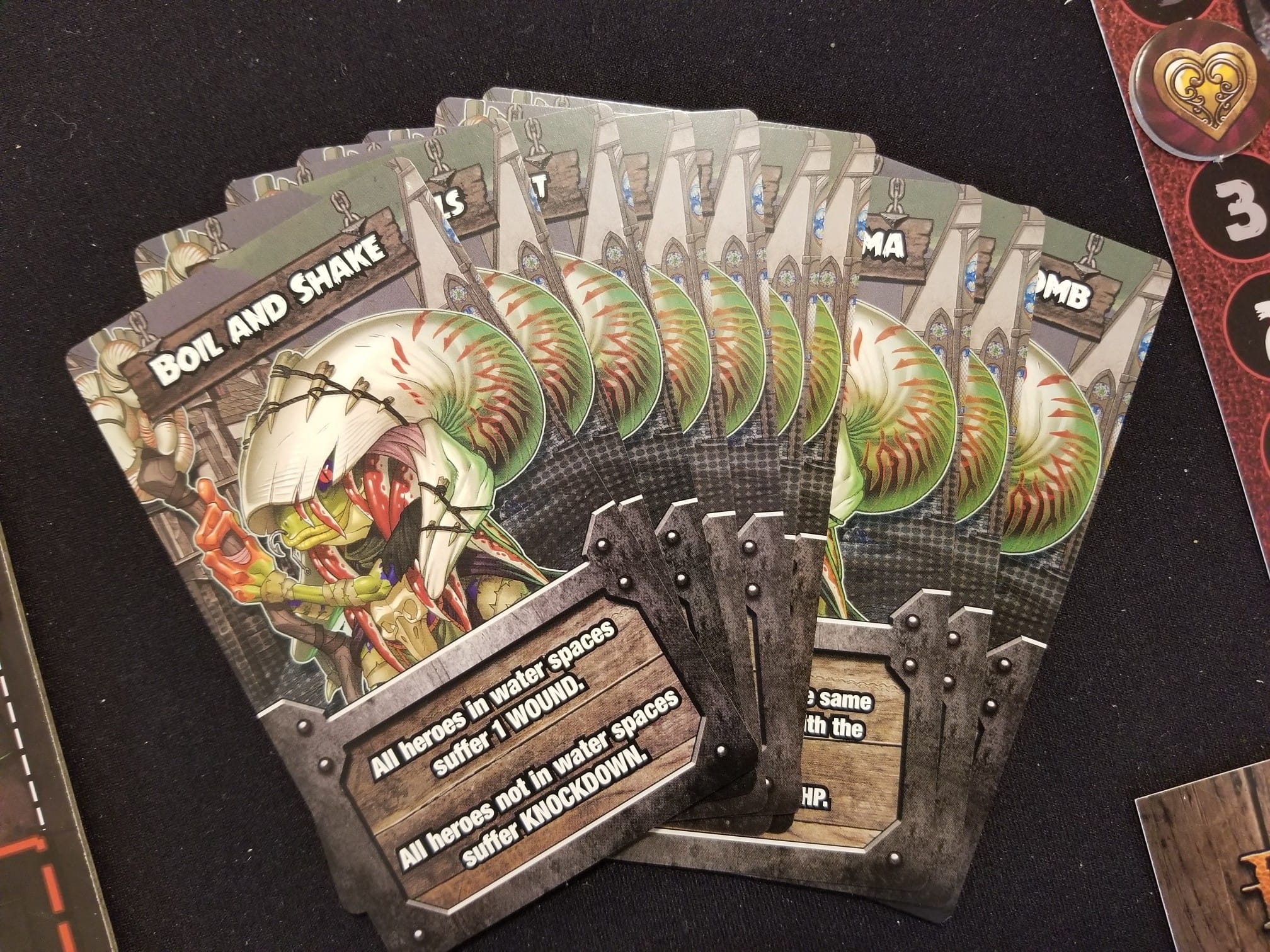
All told, Wander: The Cult of Barnacle Bay has a lot going for it. In spite of a bit of thematic weirdness with the XP system the game is easy to learn and teach, fun to play, and an attractive option to have if you play with younger players or people who like more light-hearted themes. There is enough tactics and strategy here to keep more serious gamers interested, and the speed of play and streamlined enemy AI means the game moves swiftly enough to keep all players engaged. If you like cooperative dungeon crawls, or want to try one out with your family then this game is worth some serious consideration.
A note on player count: As a fully cooperative game Wander plays well across all possible player counts, and is easily played solitaire. Turns pass quicky, even with a full compliment of players, so it's a breeze to keep younger players engaged, even when playing with a full count.
A note on “chrome”: Wander: The Cult of Barnacle Bay has excellent, beautiful components. The art is vibrant and colorful, and that art style translates wonderfully to the miniatures. The rulebook is well structured and easy to read and reference, and the cardboard components are very well made.
The bottom line:
Wander: The Cult of Barnacle Bay is an excellent game, especially if you are looking for a dungeon crawl the trends towards light-hearted. This is a great family game, both for the theming, the kid-friendly nature, and because of the minimal bookkeeping between missions. Even as a die hard cooperative dungeon crawler with hundreds of hours in games like Descent and Kingdom Death I still found Wander to be engaging and entertaining. This game would also be a great choice if you haven't played a ton of board games yet and are looking for a cooperative game to play with other new players. It's easy to play, has great art, beautiful miniatures, and the choose your own adventure style campaign means you can play through multiple times before you see everything. All in all I highly recommend it.
Get this game if:
You enjoy dungeon crawl board games.
You like cooperative games.
You like campaign games with strong replayability.
You are looking for a fun board game to play with younger people.
Avoid this game if:
You prefer competitive games.
You pefer Euro-style games.
The copy of Wander: The Cult of Barnacle Bay used for this review was provided by Panda Cult Games.
Review Summary
Have a tip, or want to point out something we missed? Leave a Comment or e-mail us at tips@techraptor.net
